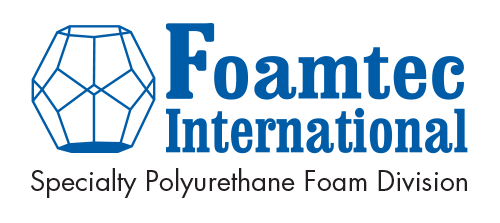Innovation Meets Artistry: The Role of Reticulated Polyurethane Foam in Ceramics Tableware Manufacturing
The world of ceramic tableware has a rich history that spans thousands of years and continues to fascinate artisans and enthusiasts globally. What started as a timeless craft has evolved into a multi-billion-dollar manufacturing industry. The global ceramic tableware market was valued at approximately $12.5 billion in 2022 and is projected to reach around $20.6 billion by 2030, representing a compound annual growth rate (CAGR) of about 6.5% from 2023 to 2030. This growth is largely fueled by the e-commerce and travel industries, with the U.S. market being the biggest importer globally.
Ceramic tableware can be mainly categorized into three different types: beverageware, tableware, and flatware. It is typically made from clay, including bone china, porcelain, or stoneware. Ceramic tableware adds a unique and personal touch to restaurants, hotels, and homes. It is also easy to clean and stain-resistant, which makes it appealing for multi-use environments.
Reticulated Polyurethane Foam Uses in Ceramic Tableware Manufacturing:
1. Cleaning and Preparation: Before creating any masterpiece, meticulous preparation is essential. Polyurethane foam sponges are indispensable tools in ceramics studios and manufacturing because they facilitate the cleaning and preparation of raw materials. Their soft yet durable texture allows for the gentle removal of excess clay, smoothing of rough surfaces, and refining of intricate details with precision. By eliminating imperfections and debris, polyurethane foam sponges help lay the foundation for flawless ceramic creations, ensuring a seamless transition from concept to completion.
2. Polishing: The application of glaze is a pivotal stage in ceramics manufacturing, imbuing pieces with color, depth, and luster. Polyurethane foam sponges offer a versatile and efficient method for polishing ceramic surfaces to a glazed glossy finish.
The Future of Ceramics Manufacturing
As the ceramics industry continues to grow, the role of reticulated polyurethane foam is set. Its unique properties, including high porosity, thermal insulation, and resistance to chemicals and solvents, make it an ideal material for various applications within ceramics tableware manufacturing. Behind the scenes from old-world crafting to modernized manufacturing, reticulated polyurethane foam plays a crucial role in supporting the processes of this globally growing market.
The Foamtec Advantage
First and foremost, the availability of high-quality, customized foam products tailored specifically for ceramics manufacturing ensures consistency and reliability in the production process. This can lead to cost savings, improved production efficiency, and enhanced product quality. By sourcing from a vertically integrated PU Foam manufacturer, like Foamtec International’s Specialty Foam Division, you will have a seamless supply chain and one company to ensure you receive the highest quality PU Foam at every level of production. With a focus on quality, innovation, and customer satisfaction, Foamtec International offers ceramic tableware manufacturers a strategic partnership that can drive advancements in product design, production efficiency, and overall competitiveness in the market.
In conclusion, the marriage of reticulated polyurethane foam and ceramics manufacturing represents a significant step forward in the industry's quest for innovation and progress. With the support of vertically integrated foam manufacturers like Foamtec International, ceramics manufacturers can harness the full potential of this versatile material, driving product quality, production efficiency, and market competitiveness. This partnership lays the groundwork for a promising future for the ceramics industry, where tradition meets innovation to create lasting value for manufacturers and consumers alike. Contact us below to discuss your polyurethane foam needs.

